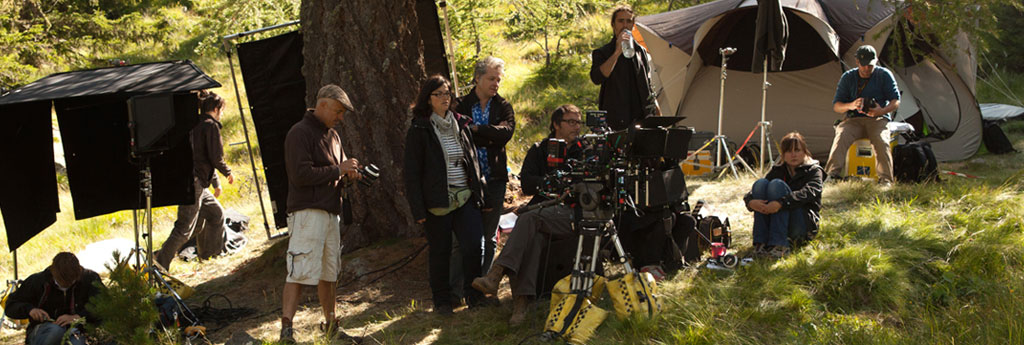
At French public broadcaster France Télévisions, going green is taken seriously. By 2020, the TV production group will cut 8% of its carbon emissions. Sophie Delorme, corporate responsibility and sustainability manager, gives an insight into the transition to sustainability.
How does France Télévisions contribute to the Ecoprod consortium’s goal to green film and TV production?
We have continued our contribution and we have also worked to promote the Ecoprod Charter.
The Ecoprod Charter has been implemented by about 50 suppliers and production companies. By becoming a signatory to the charter, they agree to implement sustainability practices. Ecoprod has conducted workshops with signatory companies to help them to adopt best practices in their normal course of business. In addition to workshops on Green IT and Waste Management, we help the companies find suppliers that will service their sustainability requirements. After the one- or two-day workshop, they walk away knowing that it’s pragmatic to be more sustainable, and that it’s simple, too.
What kind of sustainable measures have already been implemented by France Télévisions?
Our group includes five TV channels and various satellite, radio, and streaming channels. France Télévisions made a commitment to implement sustainability across the entire company. Our environment strategy is threefold: to reduce our carbon footprint; to make our programmes more sustainable; and to use our position as a leading media group to raise awareness and drive positive change on environmental issues amongst our audience and partners. We’re going to reduce our carbon emissions by 8% by 2020. This is critical because implementing and managing this program for the entire group is a formidable task. Besides reducing our carbon footprint behind the camera, we’re also producing content that raises our audience’s awareness of the different aspects of sustainability. Television plays a significant role in raising awareness on social issues.
What benefits motivate a broadcaster to go green?
Broadcasters can save money by rewieving production methods to reduce the amont of energy and resources used. Sustainable production is making programmes in a way which will have the minimum impact on the planet and the maximum benefit to the people and places involved in their creation. We made investments in our studios in order to reduce the carbon footprint. All our new soundstages have been equipped with LED lighting, which cuts our energy costs 30–50%. This, of course, is an economic advantage in the long run. The investment pays itself off and then it becomes a long-term benefit. We also have a green supply chain for IT and we’re using electric or hybrid cars whenever possible. Any time we have to replace something, we make sure that the replacement will be economically as well as ecologically efficient. All the locations in which we operate are as sustainable as possible.
Which productions have been following the best practices?
It’s not restricted to any specific type of production or format. Thanks to the upgrading of our studio facilities, we broadcast all our news shows in an increasingly sustainable fashion. And we are trying to green our productions and co-productions. A good example is the well-known French TV series Plus belle la vie, which adopted sustainable practices. They even produced a clip about it.
Are these productions using Ecoprod’s carbon clap?
Not all of them. The carbon clap is a great tool to monitor carbon impact when producing a program. If they reduce water consumption, recycle more waste materials, and manage the travel itinerary, they can cut carbon emissions, which is sustainable as well as economical.
Does France Télévisions require sustainable measures for commissioned productions?
This is an issue on which we’re working with them. It’s not obligatory yet. We’re working with green suppliers who can meet our sustainability requirements. The next step is to enshrine eco-friendly production practices legally in the terms of co-production contracts.
Every business in Europe has to cut its carbon emissions and increase its sustainability practices. The Film and TV Industry has to do its bit to reach this important goal. That’s why the Ecoprod collective is so important. Because it helps producers assume the responsibility of making their production methods more sustainable.













 Robert Redford
Robert Redford Hannes Jaenicke
Hannes Jaenicke Nic Balthazar
Nic Balthazar Nadeshda Brennicke, Actress
Nadeshda Brennicke, Actress Darren Aronofsky, Director, Noah / Jury President, 65th Berlin International Film Festival
Darren Aronofsky, Director, Noah / Jury President, 65th Berlin International Film Festival Tim Bevan
Tim Bevan Thekla Reuten
Thekla Reuten Rachael Joy
Rachael Joy Nikola Rakocevi
Nikola Rakocevi Nadja Schildknecht
Nadja Schildknecht Michael Bully Herbig
Michael Bully Herbig Lars Jessen
Lars Jessen Helen Hunt
Helen Hunt Douglas Trumbull
Douglas Trumbull Dieter Kosslick, Director Berlin International Film Festival
Dieter Kosslick, Director Berlin International Film Festival Benoit Delhomme
Benoit Delhomme Jeremy Irons
Jeremy Irons